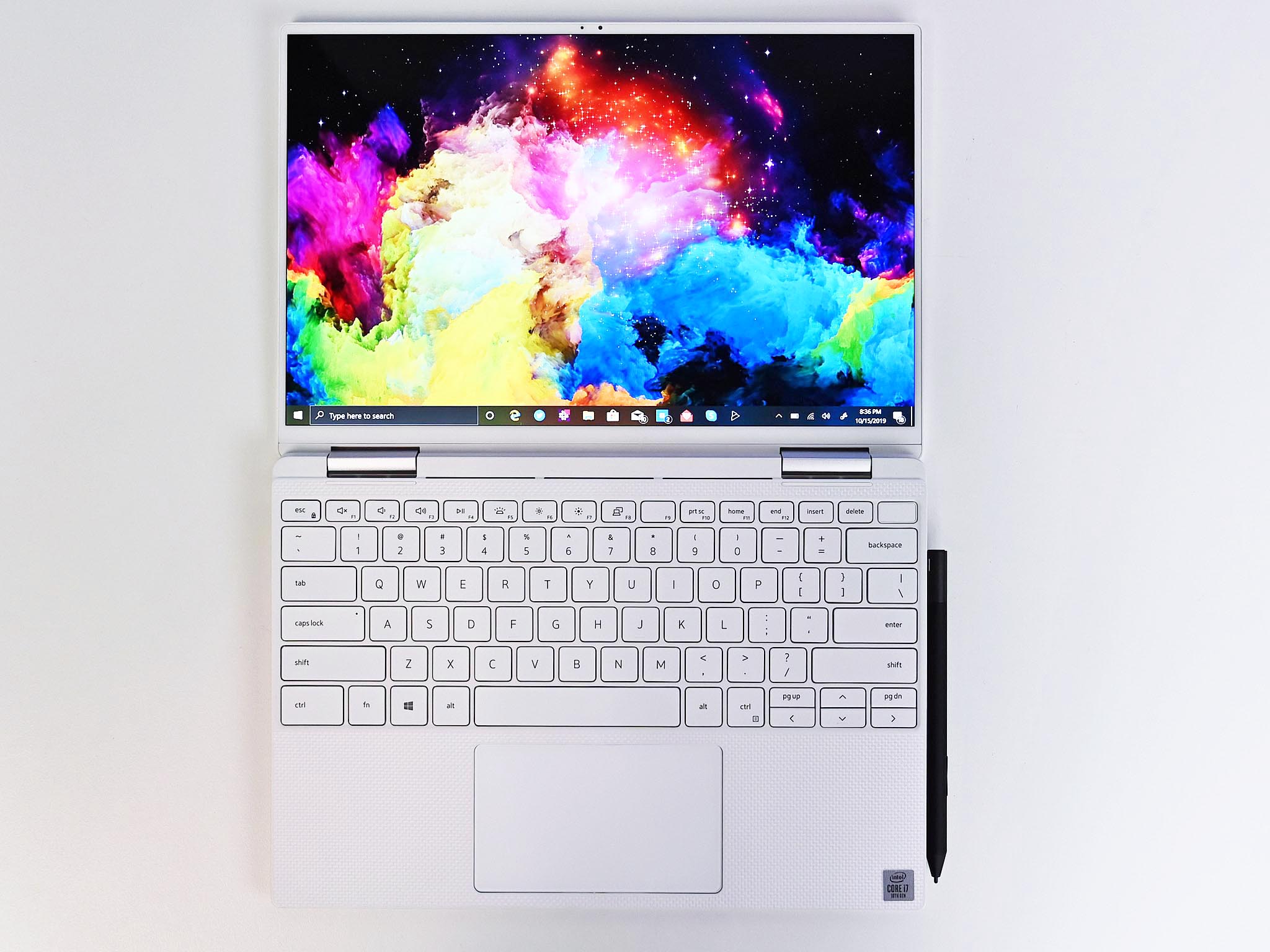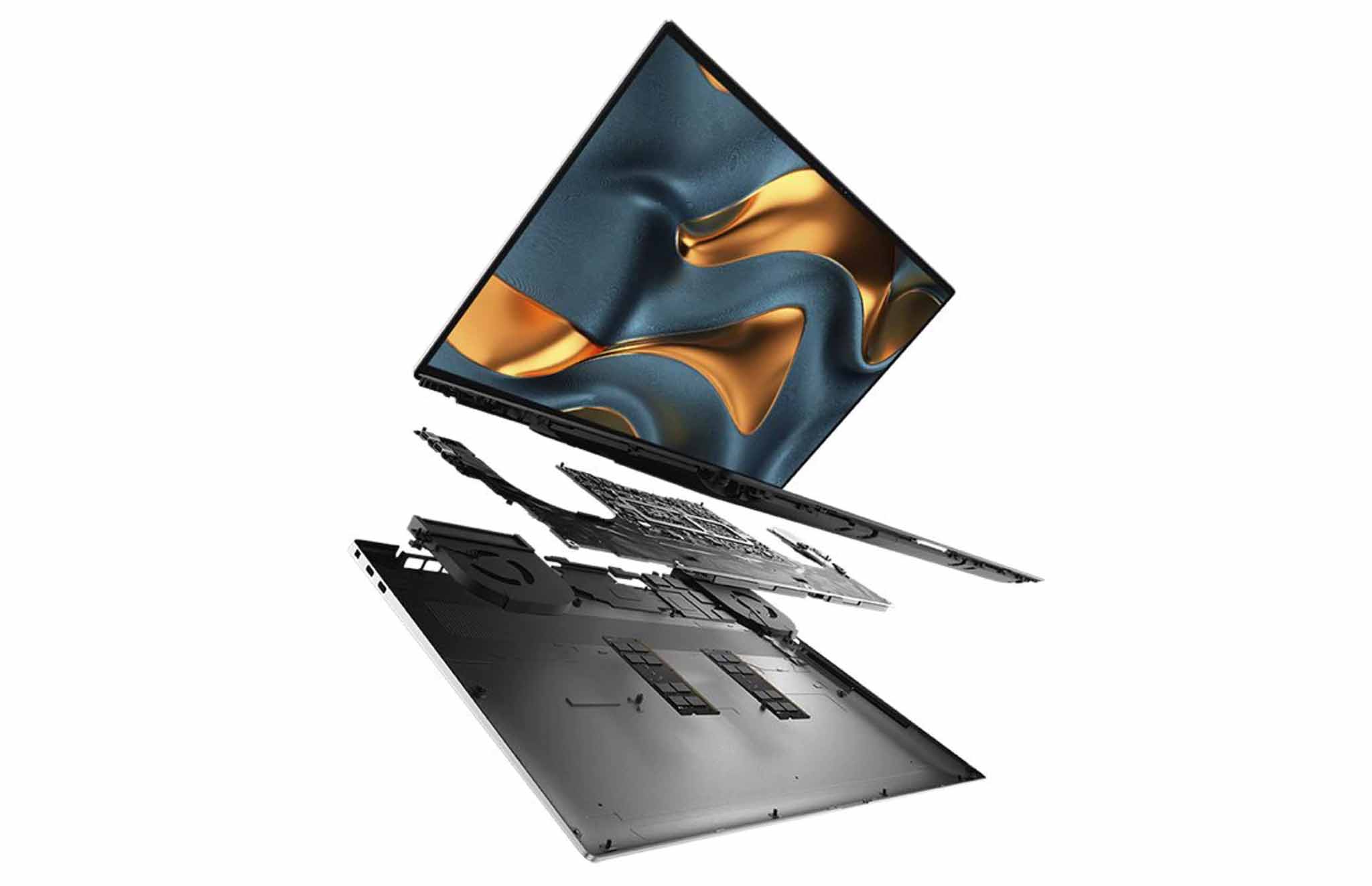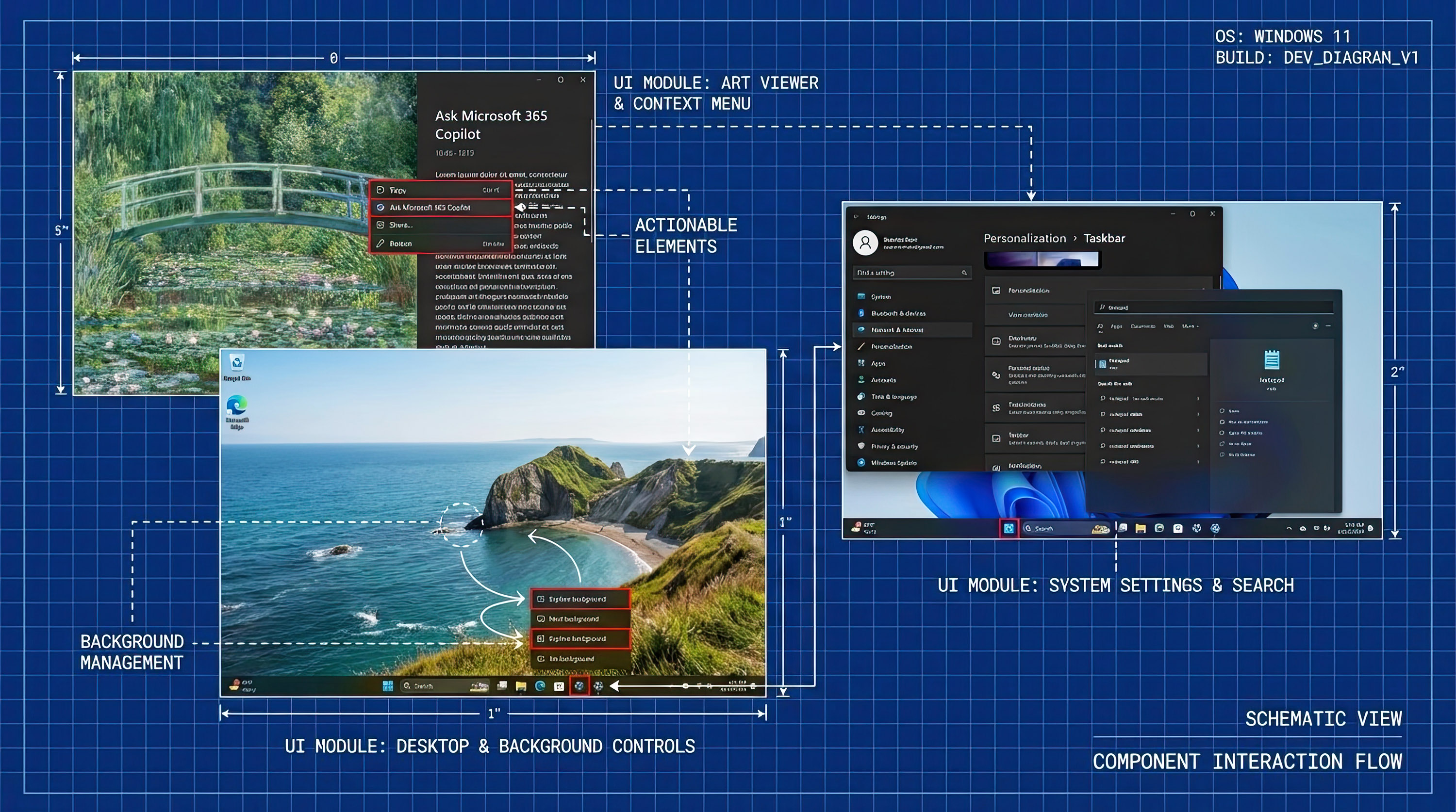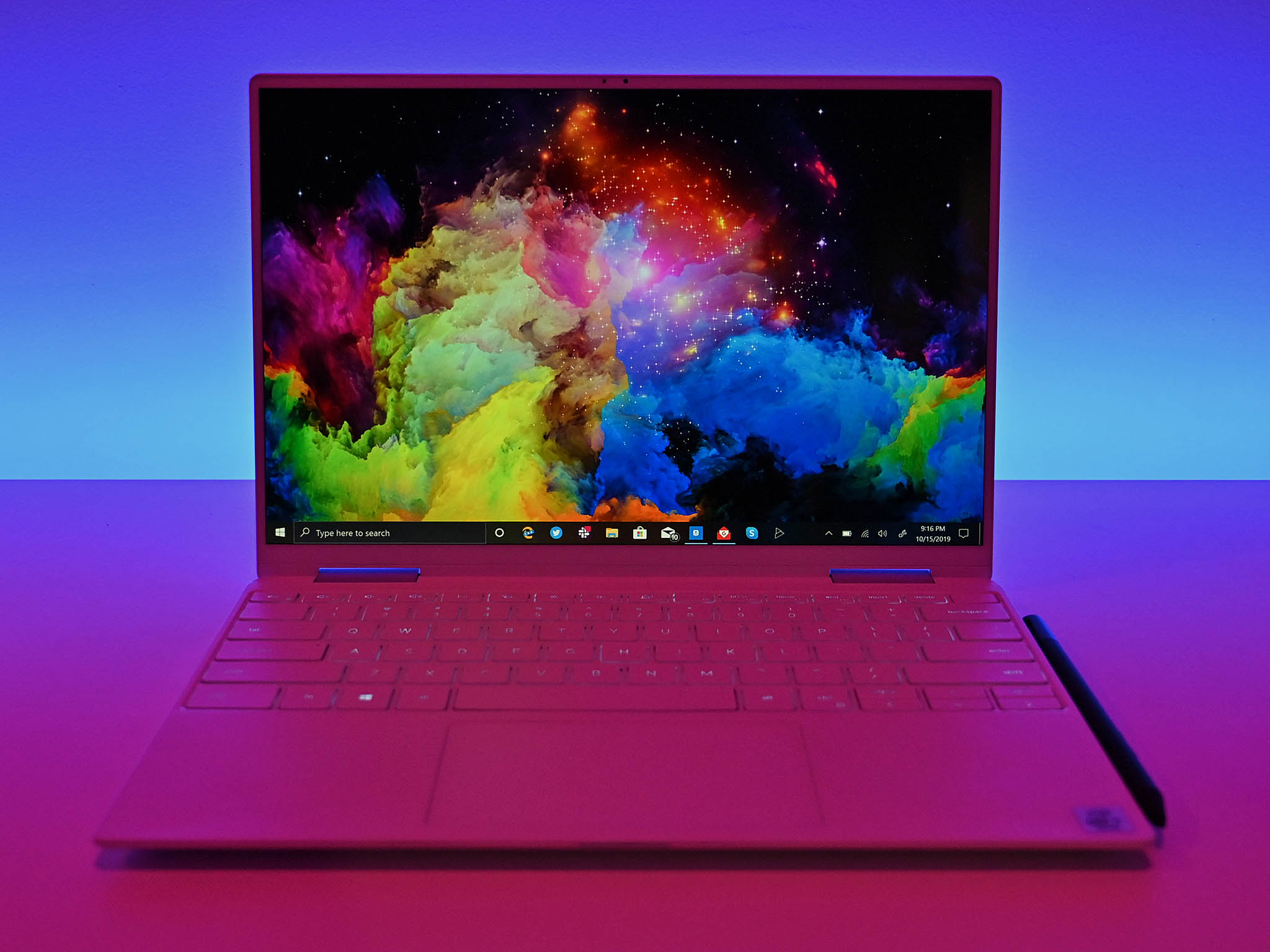
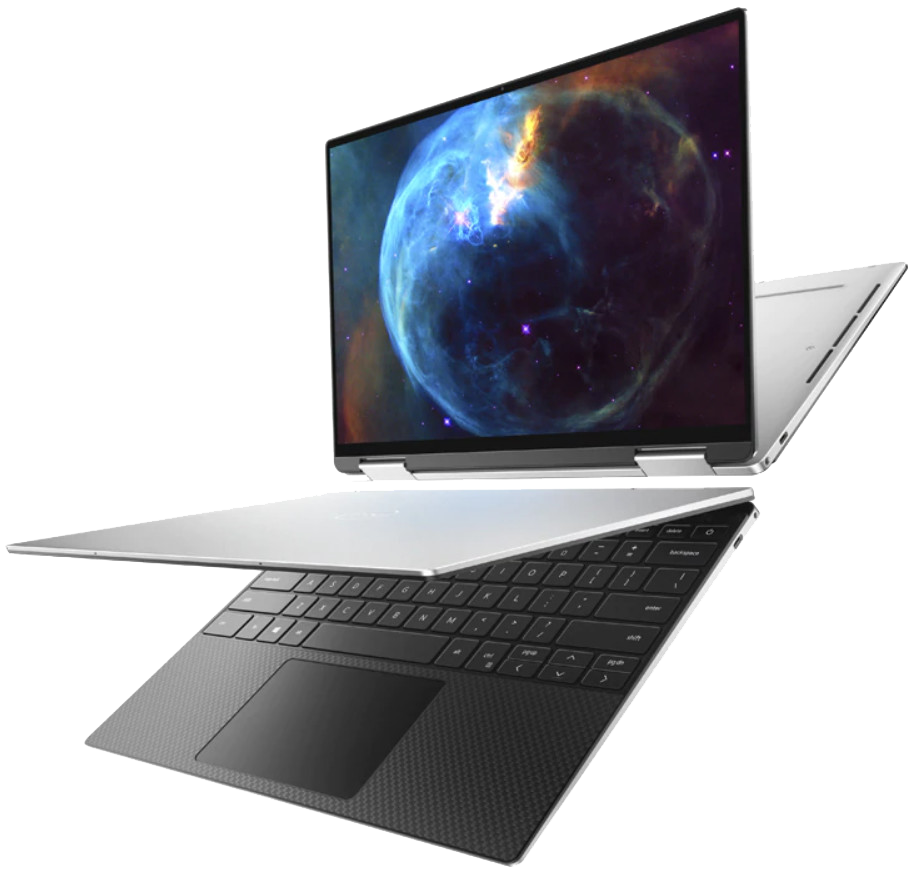
Premium 13-Inch Convertible
Dell's refreshed XPS 13 2-in-1 has some significant changes, including a 16:10 touch display with inking (UHD+ or FHD+), 10th Gen Intel Core processors (CPU), and new thermals. It won't put up the same performance as the XPS 15, but it is more portable and versatile.
Pros
- Versatile and sleek convertible build
- 10th Gen Intel Core CPU options
- 16:10 aspect ratio
- 4K touch display with HDR available
- Superior inking experience
Cons
- RAM and SSD not upgradeable
- Not as many ports
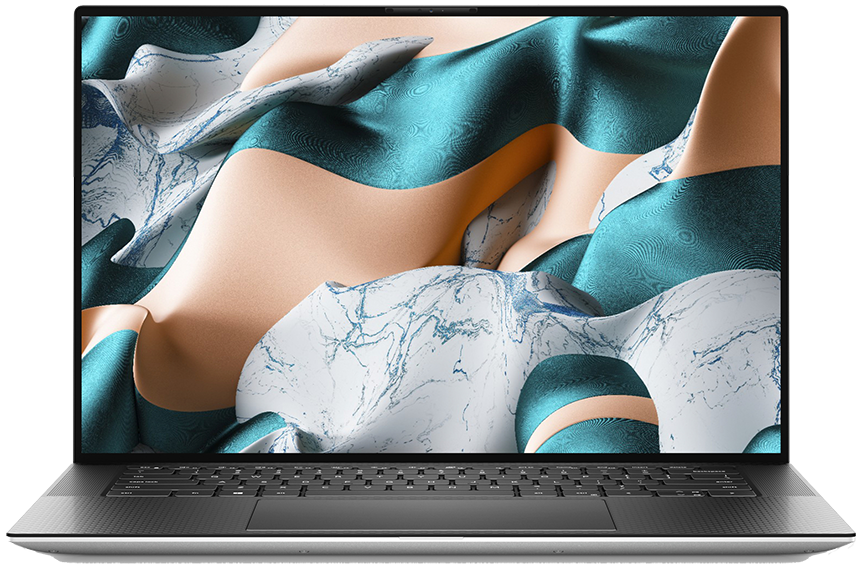
15-Inch Powerhouse Notebook
The XPS 15 (9500) is a bigger laptop with a lot of performance from 10th Gen H-series Intel Core CPUs and dedicated NVIDIA GPU, but it doesn't bring the same versatility as a convertible. Its UHD+ touch display option is ideal for multitasking, and you're going to get stellar battery life from the 86Wh option.
Pros
- 16:10 display aspect ratio
- Dedicated GPU for extra performance
- UHD+ and FHD+ resolutions
- Wi-Fi 6
- RAM and SSD are upgradeable
Cons
- Not as versatile
- Not as portable
There's no better time to shop and save money on a new laptop. Be sure to check out our continuously updated article on the best Dell XPS 13 Black Friday deals.
These two laptops from Dell offer a different experience, but that doesn't mean it's not tough to choose between the two. The XPS 13 2-in-1 is built to be as versatile as possible while still offering modest performance. In contrast, the XPS 15 is designed to bring as much performance as possible and always be relatively portable.
If you're interested in buying either of these laptops, know that Black Friday is quickly approaching and often features sales on PCs. The XPS 15 9500 is the latest (and best) model available, but you might be able to find the 7590 and 9570 models at a discounted price as retailers try to get rid of stock. Just be sure you check back at Dell's official website to ensure you're not paying more elsewhere.
And when it comes to the XPS 13 2-in-1, know that the 7390 model featured here is soon to be out-of-date. The 9310 model is the latest option available with 11th Gen Intel Core CPUs, and it's tough to imagine it will be on sale this early into its life. The 7390, on the other hand, is a lot more likely to see a discount. Dell should still have stock of the older model, so be sure you're checking there as well for any deals.
Dell XPS 13 2-in-1 vs. XPS 15 tech specs
| Header Cell - Column 0 | Dell XPS 13 2-in-1 (7390) | Dell XPS 15 (9500) |
|---|---|---|
| Processor | 10th Gen Intel Core i3-1005G1 Intel Core i5-1035G1 Intel Core i7-1065G7 | 10th Gen Intel Core i5-10300H Intel Core i7-10750H Intel Core i7-10875H |
| RAM | 4GB, 8GB, 16GB, 32GB LPDDR4x-3733MHz | 8GB, 16GB, 32GB, 64GB DDR4-2933MHz |
| Storage | 256GB, 512GB, 1TB PCIe SSD | 256GB, 512GB, 1TB, 2TB M.2 PCIe SSD |
| Display size | 13.4 inches | 15.6 inches |
| Display resolution | 1920x1200 (FHD+) 3840x2400 (UHD+) | 1920x1200 (FHD+) 3840x2400 (UHD+) |
| Aspect ratio | 16:10 | 16:10 |
| Graphics | Intel UHD Graphics Intel Iris Plus Graphics | Intel UHD Graphics NVIDIA GTX 1650 Ti Max-Q |
| Ports | Two Thunderbolt 3 microSD card reader 3.5mm audio | Two Thunderbolt 3 USB-C 3.1 SD card reader 3.5mm audio |
| Biometrics | Fingerprint reader | Fingerprint reader IR camera (optional) |
| Battery | 51Wh | 56Wh, 86Wh |
| Dimensions | 11.69 x 8.15 x 0.28 - 0.51 inches (297mm x 207mm x 7 - 13mm) | 13.9 x 9.2 x 0.36 - 0.63 inches (354mm x 235mm x 9 - 16mm) |
| Weight | From 2.9 pounds (1.32kg) | From 4 pounds (1.8kg) |
Design and features
The XPS 13 2-in-1 is a convertible laptop, meaning its lid can rotate around for tent, stand, and tablet modes. This makes it quite versatile, especially for those who want to get in on some active pen action. Users will also find it much easier to carry around thanks to a lighter weight and an overall smaller, thinner chassis.
The XPS 15 still makes a case for portability, at least compared to a lot of other 15-inch laptops on the market, starting at four pounds (1.8kg) and measuring just 0.63 inches (16mm) at its thickest point. Both laptops have fingerprint readers for extra security through Windows Hello, and the XPS 15 can have an IR camera added if you prefer facial recognition.
The XPS 13 2-in-1 is far more portable, though it's less powerful than the XPS 15
The convertible laptop's slim chassis has room for two Thunderbolt 3 ports, a microSD card reader, and a 3.5mm audio jack, setting it up for use with a docking station when you're at your desk. If you need slightly better port selection, the XPS 15 includes two Thunderbolt 3, USB-C 3.1, a full-size SD card reader, and a 3.5mm audio jack. Both laptops have comfortable keyboards and sizable Precision touchpads, and both have quality webcams positioned above the display.
All the latest news, reviews, and guides for Windows and Xbox diehards.
Overall, if you want to stay as portable as possible and don't need the extra performance found in the XPS 15, the XPS 13 2-in-1 will be a better choice. The ability to use it as a tablet or as a standard notebook appeals to many people, though some will undoubtedly choose the larger display in the XPS 15 based on their typical use case.
Both laptops support Wi-Fi 6 wireless connectivity for superior performance. Both also include Bluetooth 5.0. As for audio, the XPS 15 has been reworked to include dual 2.5W woofers and dual 1.5W tweeters, for a total of 8W of output. Compared to the XPS 13 2-in-1's dual 2W speakers, audio from the XPS 15 should be considerably louder.
Display
The XPS 15 has a 15.6-inch display with a redesigned 16:10 aspect ratio, available in FHD+ non-touch or UHD+ touch. If you're working with design and development software, the UHD+ option will appeal to you thanks to 100% AdobeRGB and 94% DCI-P3 color, 500 nits brightness, and VESA certified DisplayHDR 400. If you're more interested in better battery life and lower price available with the FHD+ model, rest assured it still brings Dolby Vision HDR support, 500 nits brightness, and 100% sRGB color reproduction.
The XPS 13 2-in-1 also sports the 16:10 aspect ratio for a boxier look with more screen real estate, and it's available in either FHD+ or UHD+ resolutions. Active pen support is standard with all displays, bringing 4,096 levels of pressure sensitivity and tilt support. Coupled with the convertible nature of the chassis, the XPS 13 2-in-1 is a much better choice for anyone who loves using an active pen for jotting down notes and drawing.
As a bottom line, you're no doubt going to be satisfied with any display you choose with either laptop. Dell doesn't skimp on screens, and you have plenty of options to choose from. If you need more space, the 15.6-inch XPS 15 display should beat out the 13.4-inch XPS 13 display, but the added inches do make it less convenient to carry around with you everywhere you go.
Performance and price
The XPS 13 2-in-1, with 10th Gen Intel CPU options, 1TB solid-state drive (SSD), and 32GB of RAM, will be able to cut through most general work with ease, and it should keep cool while doing it. The Core i7 CPUs feature Intel Iris Graphics for some extra power for light gaming, but if you want to get into specialized work or more intensive gaming, the XPS 15 is going to be a much better fit.
The larger laptop features 10th Gen Intel H-series CPUs (including up to a Core i7-10875H option) with killer performance. The optional NVIDIA GTX 1650 Ti Max-Q dedicated GPU with 4GB of VRAM pushes it well ahead of the XPS 13 2-in-1. You can also opt for a massive 86Wh battery to keep up with the performance hardware.
The XPS 13 2-in-1 starts at about $980 for a model with Core i3 CPU, 4GB of RAM, a 256GB SSD, and touch FHD+ display. The XPS 15 has a higher starting price at about $1,274, but you're getting a Core i5-10300H CPU, 8GB of RAM, a 256GB SSD, and a non-touch FHD+ display.
Scaling up, an XPS 13 2-in-1 with Core i7 CPU, 16GB of RAM, 512GB SSD, and UHD+ touch display costs about $1,960. A similar XPS 15, with Core i7 CPU, 16GB of RAM, 512GB SSD, NVIDIA GTX 1650 Ti Max-Q GPU, and UHD+ touch display costs about $2,166.
Keep in mind that the XPS 13 2-in-1 has RAM and SSD that are soldered, so there's no option to upgrade after purchase. The XPS 15 gives you the ability to upgrade both RAM and SSD after purchase to keep it relevant long into the future.
The XPS 13 2-in-1 is the more versatile option
In general, you're going to pay a premium for the convenience of a convertible chassis, touch display, and latest 10th Gen Intel hardware. Still, the added versatility of being able to use the laptop in tent, stand, and tablet mode will appeal to a lot of people. The XPS 13 2-in-1 is also smaller and lighter, making it easy to carry around wherever you go.

A beautiful convertible with 10th Gen Intel hardware
If you're in the market for a 13-inch convertible laptop, the XPS 13 2-in-1 is about the best you're going to find. It might not offer the same performance as the XPS 15, but it's more portable and offers a great inking experience.
Go with the XPS 15 for a dedicated GPU, larger display
The mighty XPS 15 trades a larger chassis and more weight for stellar performance, including a dedicated NVIDIA GPU. It's the better pick if you're getting into specialized work or want a better gaming experience, and its 4K display option is gorgeous. Have a look at our collection of the best Windows laptop option to see where it ranks.

Cale Hunt brings to Windows Central more than nine years of experience writing about laptops, PCs, accessories, games, and beyond. If it runs Windows or in some way complements the hardware, there’s a good chance he knows about it, has written about it, or is already busy testing it.

